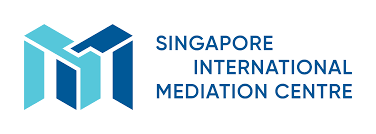Mediation: The Go-To Dispute Resolution Mechanism in India
In a new publication by Nishith Desai Associates, authors Ashish Kabra [1], Payel Chatterjee [2]and Sahil Kanuga [3] describe current developments in India’s commercial mediation scene and how it is increasingly recognised as a first call of action. Mediation: The Go-To Dispute Resolution Mechanism in India makes the case for mediation, and suggests a necessary impetus to equip dispute resolution professionals with mediation skills and for them to adopt it as part of their advisory work.
Abstract
Over the years, India’s appetite for resolving disputes amicably through mediation is evident. In addition to statutory provisions, the Supreme Court of India has upheld the provisions of mediation and general dispute resolution processes in several rulings for the past few decades. Some of these high profile cases include the dispute between the Ambani brothers; the takeover of South African telecom major MTN; Hoffman La Roche v. Cipla; and Merck v. Glenmark. The Supreme Court even referred the Ayodhya dispute to mediation, considering the sensitivities and high stakes involved.
In January 2020, in a unique and unprecedented step, the Supreme Court of India set up a panel to firm up a draft legislation to give legal sanctity to disputes settled through mediation. The panel would make several recommendations, such as mediators’ code of conduct, confidentiality, the voluntary nature of the process, neutrality, avoiding conflicts of interest, and the enforceability of settlement agreements. Several governmental institutions and NGOs (including CAMP Bangalore, FCDR-Chennai and Maadhyam Delhi), retired judges, senior partners of law firms and academics from leading national and international universities have submitted their recommendations to the Ministry of Law and Justice for a comprehensive Indian mediation legislation.
Furthermore, as one of the first signatories to the Singapore Convention on Mediation, which gives ‘teeth’ to the enforcement of international mediated settlement agreements, India indicates its strong commitment to adhere to global standards on alternative dispute resolution. This is much needed to promote mediation within the domestic and international business / investor community.
The momentum on mediation is on the rise and will continue to make gains. One can expect the Indian government to roll out a detailed framework within which mediation and mediated settlement agreements will operate. These developments also necessitate developing the skillsets of dispute resolution professionals in a way that allows them to understand the long-term benefits of mediation, act as a mediation advocate and mediate, ultimately adding value to their advisory work.
[1] Ashish Kabra, heads the International Dispute Resolution & Investigations Practice at Nishith Desai Associates, Singapore.
[2] Payel Chatterjee, is a senior member of the International Litigation & Dispute Resolution Practice and heads the European Practice at Nishith Desai Associates.
[3] Sahil Kanuga, co-heads the International Dispute Resolution & Investigations Practice at Nishith Desai Associates.

